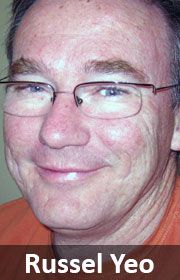 I can claim no special insight into the machinations at the ANC national general council (NGC). A seasoned political reporter once told me that no one knows what’s going on inside that famously broad church. And she was known for her ANC insight and contacts. Even Thabo Mbeki, despite his hold over the security and intelligence muscle of the state, seemed to have no premonition of his impending regicide.
I can claim no special insight into the machinations at the ANC national general council (NGC). A seasoned political reporter once told me that no one knows what’s going on inside that famously broad church. And she was known for her ANC insight and contacts. Even Thabo Mbeki, despite his hold over the security and intelligence muscle of the state, seemed to have no premonition of his impending regicide.
The vicious battle over the policy on digital migration is no exception. All we can say for sure is:
- The ANC’s communications commission, headed by Lindiwe Zulu, had after long debate elected encrypted digital television. The muddled communication around this did not clarify whether this included conditional access or not.
- In March, communications minister Faith Muthambi announced a policy of non-encrypted set top boxes, with cabinet approval.
- E.tv then announced it would head to court to contest this.
- After the NGC, Jackson Mthembu issued a furious statement, claiming that the ANC had not been consulted about the decision to dump encryption.
The noise following this fracas suggests this battle is far from over.
There has been extensive coverage about the practical and technical aspects of this contest; not so much about the media business.
On the broadest canvas, media have always been in transition. When radio stations first began to broadcast, newspaper owners panicked. News could go, free, into everyone’s homes! Advertising and subscription cash would drain away! Disruption followed from television, but newspapers and magazines prospered.
Then came the Internet. And then smartphones. A one-two punch to the nether regions of the media business.
Over a longer period, the power of advertising had also begun to wane. In the Mad Men epoch, a homogenous population, the concentration of media into a few outlets, and the sheer novelty of branding had made promotion uniquely powerful. No more. A fractious public is spread thin, and are weary of the constant bleat from commerce. They will work hard to avoid ads. The Internet made classified advertising, the largest traditional income for newspapers, instantly obsolete. Another kind of advertising, bending public political opinions, has also drained from newspapers.
And so subscription and cover-price revenue is now much more important than advertising revenue. That leaves e.tv up a long creek with no subscription paddle. TV entertainment content is next on the revenue-cutting block. Why wait a week for the next episode, and be hassled with ads, when you can binge-watch from Netflix? Or just pirate the lot?

The power of sport
There is one type of content that avoids all these land mines: live sport. Downloading the game hours later simply does not fly. Live-tweeting has all the urgency of being put on hold by the Telkom call centre.
Sky UK was among the first to realise this, building its success on its dominance of British football broadcasts. Our local M-Net took an inordinately long time, and vast truck-loads of cash, to cotton on. But MultiChoice, M-Net’s successor, has made it an art form. Look at the fast dwindling crowds at local sport events. Even — gasp! — Stormers matches attract less than 100% attendance. Some PSL matches are happy to get 20%.
Drive from Cape Town airport along the N2 and look at the dense shack-lands on each side, and you will see roofs decorated with satellite dishes. These are poor people in desperate circumstances, and yet they find the cash to pay MultiChoice every month. It’s estimated that 50c of every South African sport rand (entrance, sponsorship, merchandise, etc) comes from the MultiChoice pot. This begins to look like a natural monopoly.
Someday an insider will write a book about how MultiChoice got to this enviable position. Sadly, we may never know how public policy was changed.
What counts now is how other media players are going to respond. Do they fight it, or join it?
In this environment, it would take a very brave player to sink the billions it would take to establish a new conditional access system. Not to mention the costs for content rights. No wonder they hope that the communications ministry will do this for them.
This fight is going to get much nastier still.
- Russel Yeo has worked in the advertising and media business, and was the founding chairman of the Online Publishing Association, now IAB South Africa




